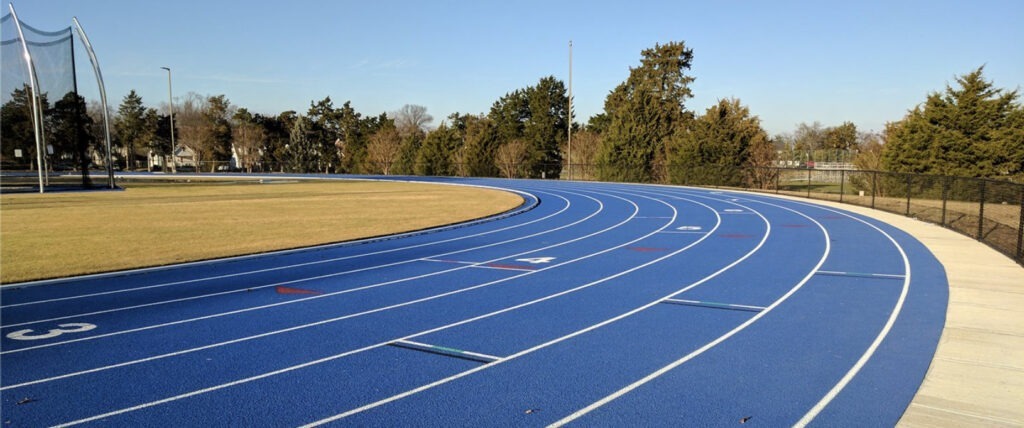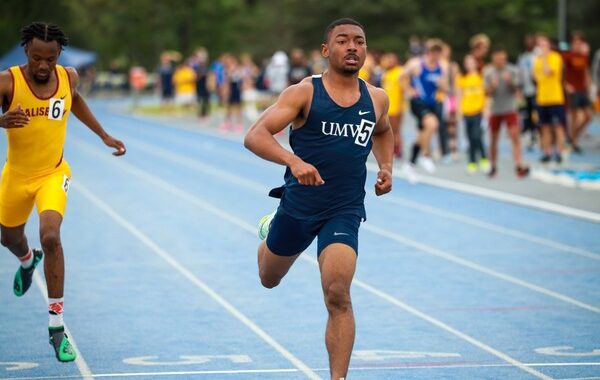UMW cross country runners join COVID-era league
3 min read
UMW's home track and field is being used for practices and conditioning this fall semester. | facebook.com
By: Jacob Lewis
The UMW cross country team has found ways to compete outside the normal bounds of collegiate sports in a pandemic.
A special new league began this year and has been working to give runners from UMW and around the region a chance to participate in competitive races. These meets take place in Kernstown Battlefield in Winchester, Virginia, in which follow a strict, socially distanced format that includes separate waves of 50 runners in order to reduce contact.
“I had been really looking forward to getting back into racing, so even though I understand that it’s the right decision, I was really disappointed to hear that there would be no races this semester,” said Carly Hughes, a senior English major. Many runners like Hughes have been looking for a way to continue racing despite the shutdown in official competitions this year, and this was the perfect outlet to do just that.
Shenandoah University’s cross country coach, Andrew Marrocco, found a workaround for the season, and reached out to Coach Steven Harrison about the program. Marrocco approached the board of the Kernstown Battlefield Association this summer, hoping to use their grounds as a venue for a racing league that would give cross country runners a place to continue to compete safely during the COVID-19 pandemic. Since then, Kernstown Battlefield has been host to three sizable races, with two more coming up, all coordinated as a part of the Inaugural Shenandoah Valley Cross Country League.
“[Coach Harrison] sent us an email about this Shenandoah race series, and right away some of us from the team signed up, three or four from the guys’ team and two or three other girls,” said Kenzie Lloyd, a junior interdisciplinary sciences major.
Eight members of the team have been running in the Inaugural Shenandoah Valley Cross Country League this year, and Lloyd is one of the six who are participating in every race.
Ashley Applegate, a senior and business administration major, is also competing in every race.
“The majority of the people in the league are actually high schoolers. They come from a couple different states to Kernstown for the race,” Applegate explained. In addition, middle schoolers, college students, and adults not affiliated with any team can sign up and race with the league. The league’s season consists of four regular races, including a three kilometer race, a six kilometer race, and a two-five kilometer race. At the end of the season, there is an additional champion race, for which one must qualify by being in the top bracket of one’s age and gender group in the previous races.
The Shenandoah League must, however, contend with the same issues that got the normal Cross Country season cancelled in the first-place. An ordinary season would see a substantial amount of mingling and interpersonal contact both between and amongst teams; contact that can no longer be risked due to the obvious health concerns.
“There are a lot of different COVID rules we have to follow for the league, and about twenty protocols about how we have to race,” says Applegate. The Shenandoah League’s website lists seventeen such protocols, and they appear to be expansive and leave little room for mistakes that could result in the spread of disease. These include the provision that every race is divided into five waves of 50 runners each, which begin the race 90 seconds apart to limit crowding at the starting line. No spectators are allowed and no awards ceremony or other gatherings are held. Additionally, all runners are required to wear masks at all times except during the race itself.
The UMW runners associated with the league say they are grateful for the chance to do what they love: race. “This is actually an opportunity to run cross country races but still have it in a safe environment during a pandemic,” said Applegate.
“I really wanted to still have some structure and something I could train for instead of just running more miles,” explained Lloyd. “It’s been a nice way to have something to train for and have goals that I can still set for myself this year.”











